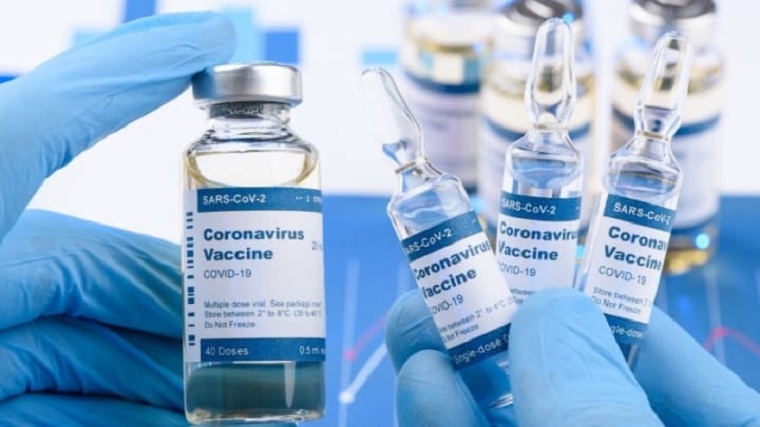 Zimbabwe says private players like companies and medical aid societies are allowed to buy their own coronavirus vaccines but they must do so through the Ministry of Finance and must give them to their workers or members for free.
Zimbabwe says private players like companies and medical aid societies are allowed to buy their own coronavirus vaccines but they must do so through the Ministry of Finance and must give them to their workers or members for free.
All vaccines, however, have to be registered.
“We are not going to have people who buy the vaccine as a commercial business entity because we are very clear that CIMAS is going to buy its vaccines but the policy is it will be provided to the CIMAS clients for free,” Deputy Minister of Health John Mangwiro told Parliament.
“So, if the large corporates can buy, it would be good for government and we encourage it. We would love to have many of them buying and help vaccinate their workers and other people. So, we are not shooting ourselves in the foot because this is for free and the policy is clear to all corporates that the vaccine will be given for free.”
Below is the full Q&A in Parliament:
HON. BITI: Hon. Speaker, my question is directed to the esteemed Minister of Health and Child Care, Hon. Dr. Mangwiro. In view of the fact that the country has only imported 200 000 Sinopharm vaccines against a population of around 16 million, would it not be prudent that the Drugs Control Council of Zimbabwe registers other vaccines approved by the WHO, the Russian Sputnik 5, Sinovac, Astrazeneca, Moderna, Johnson and Johnson to allow medical aid societies, pension funds, trade unions, big corporations such as Delta and Econet to also import these registered drugs, with the Ministry playing a regulatory role to ensure that our people are safe? I think this supplementary private effort will then help the people of Zimbabwe. I thank you.
THE DEPUTY MINISTER OF HEALTH AND CHILD CARE (HON. DR. MANGWIRO): Thank you Hon. Biti for that pertinent question and suggestion. I must say the 200 000 vaccine that were delivered from Sinopharm is just the beginning. We are in the process of bringing more vaccines not only from Sinopharm but we are almost through with registering the Sputnik he is talking about, Sinovac, Indians are also producing their own vaccines. So there are many vaccines that are being registered and the registration process has been made easy, instead of taking three months or so, it is now taking 2 to 3 days if all documents are there. Therefore, we have already registered 3 or 4 already.
Secondly, private players like medical aid societies for example CIMAS and other big corporates like Econet have already approached the Ministry with the wish to help out. As a Ministry, we said they are welcome, they bring in their money, tell us what they want to do and buy through the Government so that all the vaccines that are bought are registered in the country. So we will only monitor to make sure that the vaccines are registered here and that they are going to be kept safely. We are also going to be inspecting where the vaccines are going to be stored or if they want, they can come and pick their vaccines in drips and drabs tubes and give to their CIMAS members or all those people.
So, in short we have registered plenty of them and we are in the process of having applications from other vaccine producers so that we can register them as well. If you have any private company that wants to do this, they approach us and we redirect them to the Ministry of Finance and Economic Development who has opened a special account for private people who want to buy these vaccines. We want to make it easy for all Zimbabweans to get it and we will not deny private players. I thank you.
Continued next page
(97 VIEWS)

